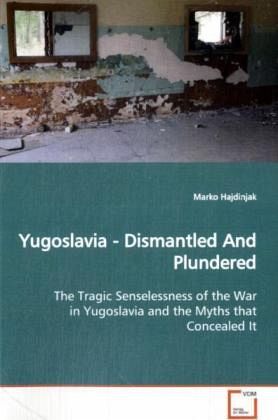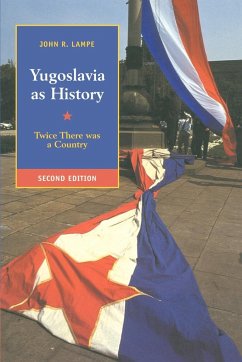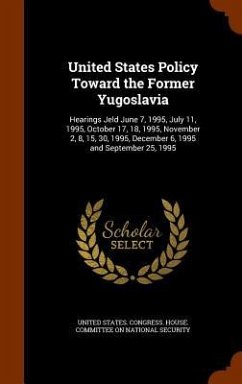
Yugoslavia - Dismantled And Plundered
The Tragic Senselessness of the War in Yugoslavia and the Myths that Concealed It
Versandkostenfrei!
Versandfertig in 6-10 Tagen
32,99 €
inkl. MwSt.

PAYBACK Punkte
16 °P sammeln!
After 1991, numerous explanations of Yugoslavia sviolent dissolution appeared. Most named nationalismas the driving force fueling the Yugoslav inferno.However, countless events from the 1991-1995 periodoffer alternative point of view. While acknowledgingthe complexity of Yugoslavia s demise, this bookshows that nationalism was used above all as a coverunder which a thorough criminalization of thepost-Yugoslav states was hidden. To successfullydismantle and plunder Yugoslavia, the criminalpartnership (political class, security sector andorganized crime) exploited the social-economiccollapse, th...
After 1991, numerous explanations of Yugoslavia s
violent dissolution appeared. Most named nationalism
as the driving force fueling the Yugoslav inferno.
However, countless events from the 1991-1995 period
offer alternative point of view. While acknowledging
the complexity of Yugoslavia s demise, this book
shows that nationalism was used above all as a cover
under which a thorough criminalization of the
post-Yugoslav states was hidden. To successfully
dismantle and plunder Yugoslavia, the criminal
partnership (political class, security sector and
organized crime) exploited the social-economic
collapse, the power of mass media and the fatal
attraction of historic myths to reconstruct the
national identities of the Yugoslav nations. This
book should be of interest to all people with
professional or personal interest in the former
Yugoslavia and especially to those among them who
still search for a rational explanation of
Yugoslavia s irrational collapse.
violent dissolution appeared. Most named nationalism
as the driving force fueling the Yugoslav inferno.
However, countless events from the 1991-1995 period
offer alternative point of view. While acknowledging
the complexity of Yugoslavia s demise, this book
shows that nationalism was used above all as a cover
under which a thorough criminalization of the
post-Yugoslav states was hidden. To successfully
dismantle and plunder Yugoslavia, the criminal
partnership (political class, security sector and
organized crime) exploited the social-economic
collapse, the power of mass media and the fatal
attraction of historic myths to reconstruct the
national identities of the Yugoslav nations. This
book should be of interest to all people with
professional or personal interest in the former
Yugoslavia and especially to those among them who
still search for a rational explanation of
Yugoslavia s irrational collapse.












